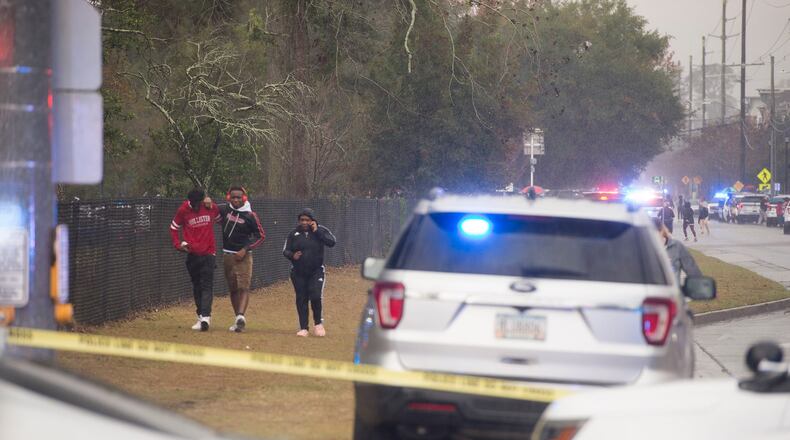After an active shooting call at Savannah High School on Wednesday turned out to be what local officials referred to as a "hoax," many wonder what a hoax actually is.
Local law enforcement agencies descended on the campus after reports of kids, teachers and others injured began to proliferate through social media. Similar calls also happened at other Georgia school districts.
Here's a dive into what the phrase means and how it relates to the false reports claimed earlier today.
Credit: Will Peebles
Credit: Will Peebles
What is a hoax?
A hoax is a malicious deception, according to the Merriam-Webster dictionary.
Additionally, it's a falsehood that is meant to trick a large group of people into believing something, or to cause panic. People may create a hoax to draw attention to themselves, discredit others or gain financial benefits, among other reasons.
Hoaxes can be as simple as making a false claim about a celebrity, or as momentous as causing distress amongst a large group of people. They can also be dangerous, especially when it involves the safety of a person or group.
Swatting, and the false shooting claims
"Swatting" is a form of a hoax that involves prank-calling law enforcement to report criminal activity. This is usually done to incite a large response from police and first-line responders. Victims of swatting can include an individual, group of people or, as shown in recent events, a public place or school.
Since 2015, swatting has been a punishable crime that can result to a life in prison once arrested.
Common examples of swatting include targeting celebrities and sending police raids to their house, or sending law enforcement to investigate online-gaming streamers' houses. Some of these instances occurred while the gamers were live-streaming to their audience.
Credit: Richard Burkhart/Savannah Morning News
Credit: Richard Burkhart/Savannah Morning News
Recent false reports of school shootings, like the ones at Brunswick and Savannah high schools, seem to be examples of swatting. Instances of these hoaxes can cause harm to anyone involved, be it mentally, emotionally or physically. These events also pull attention away from real emergencies that may be occurring at the same time.
This article originally appeared on Savannah Morning News: Are active shooter hoaxes becoming common? Here's what to know about those and 'swatting'
The Latest
Featured



